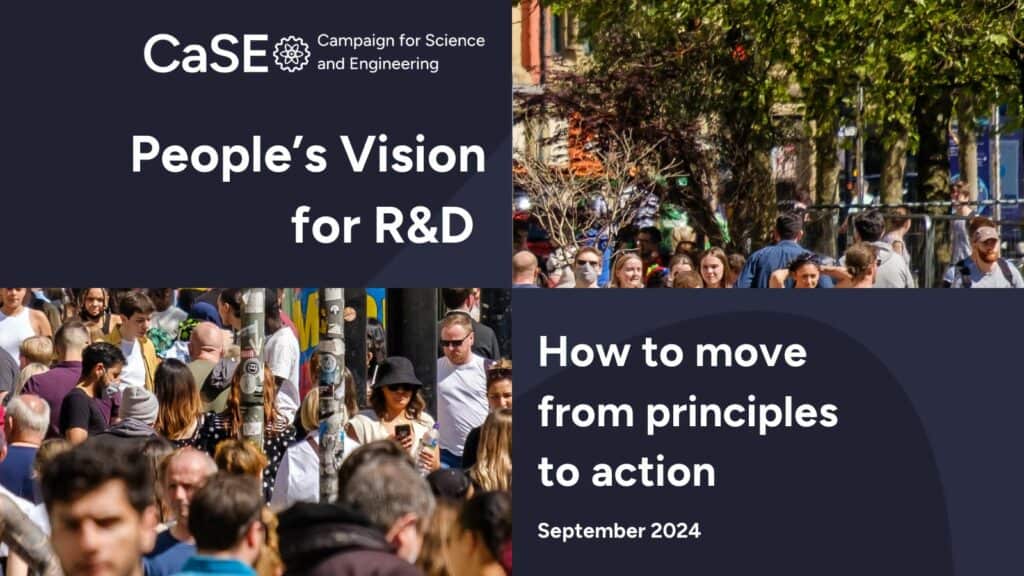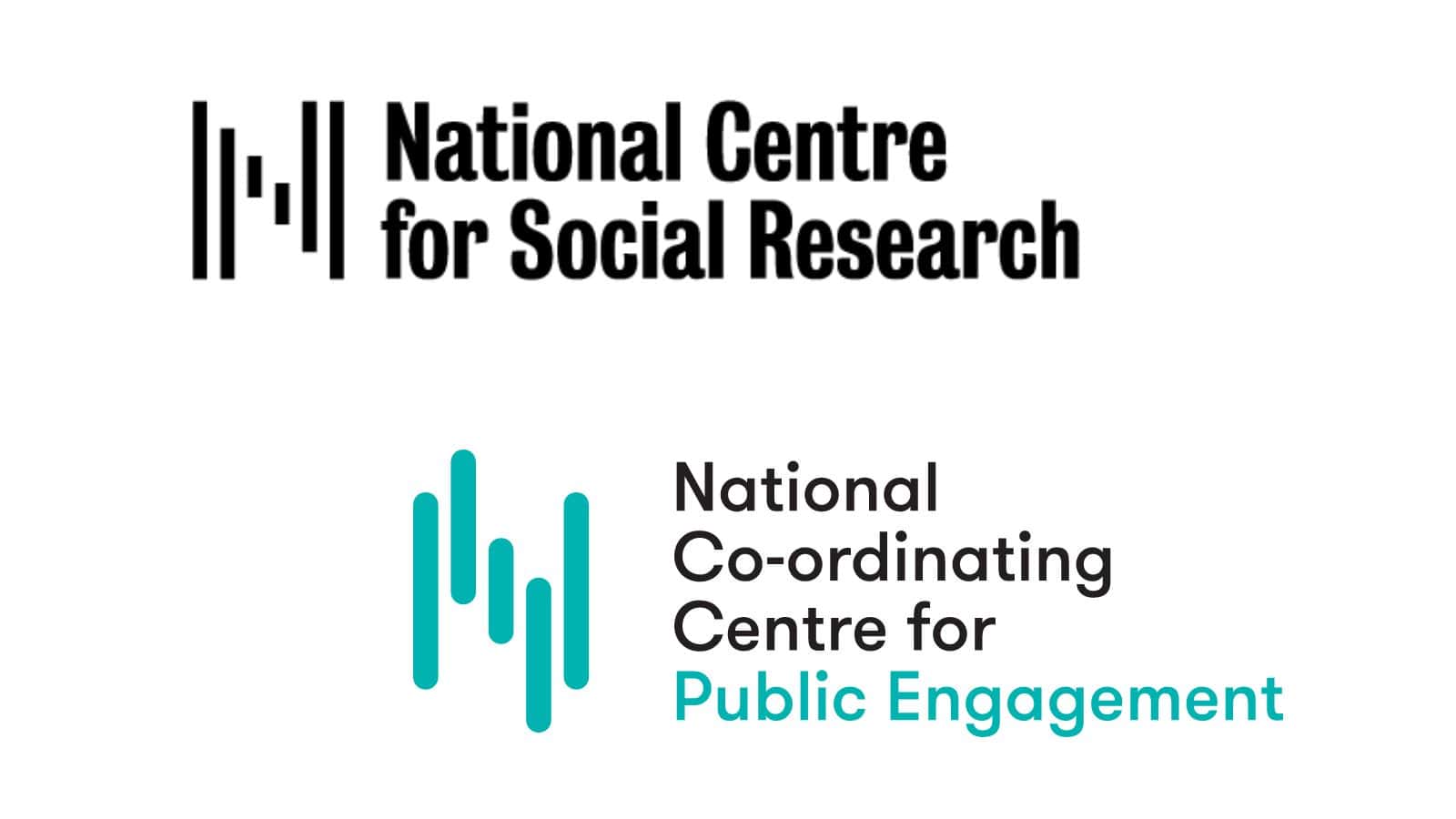Download the report and other resources
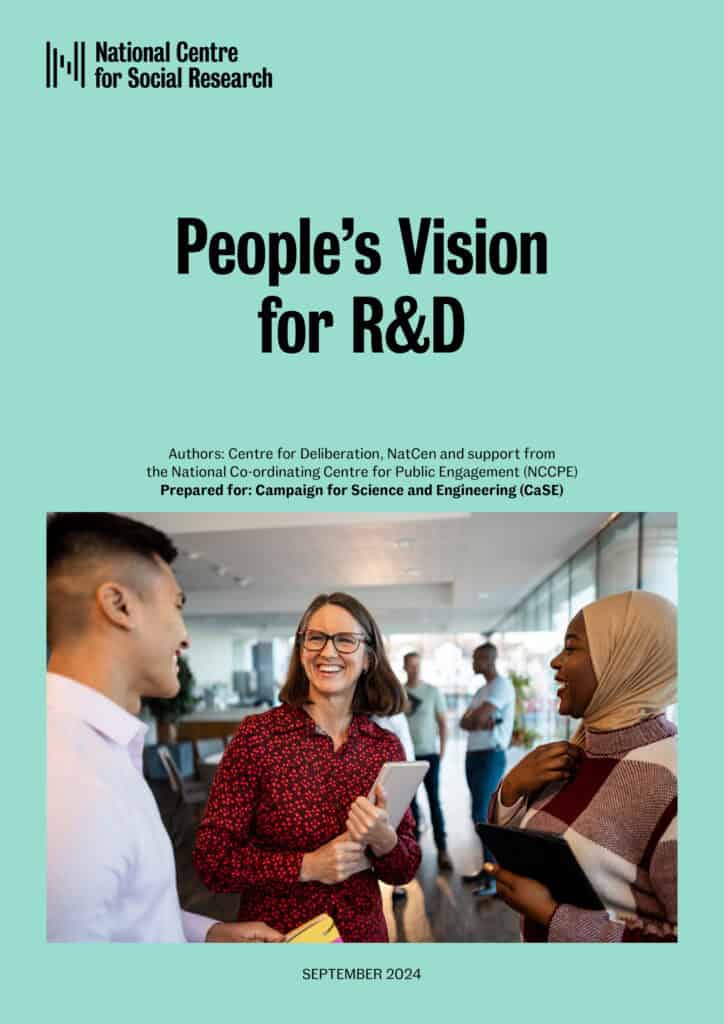
Full report on the public dialogue
The National Centre for Social Research’s main report from this project discusses the public dialogue process and its findings, including the development of the four People’s Principles for Involvement in R&D and reflections from the participants in the dialogue. In addition, NatCen offers three recommendations for research that could build on this project.
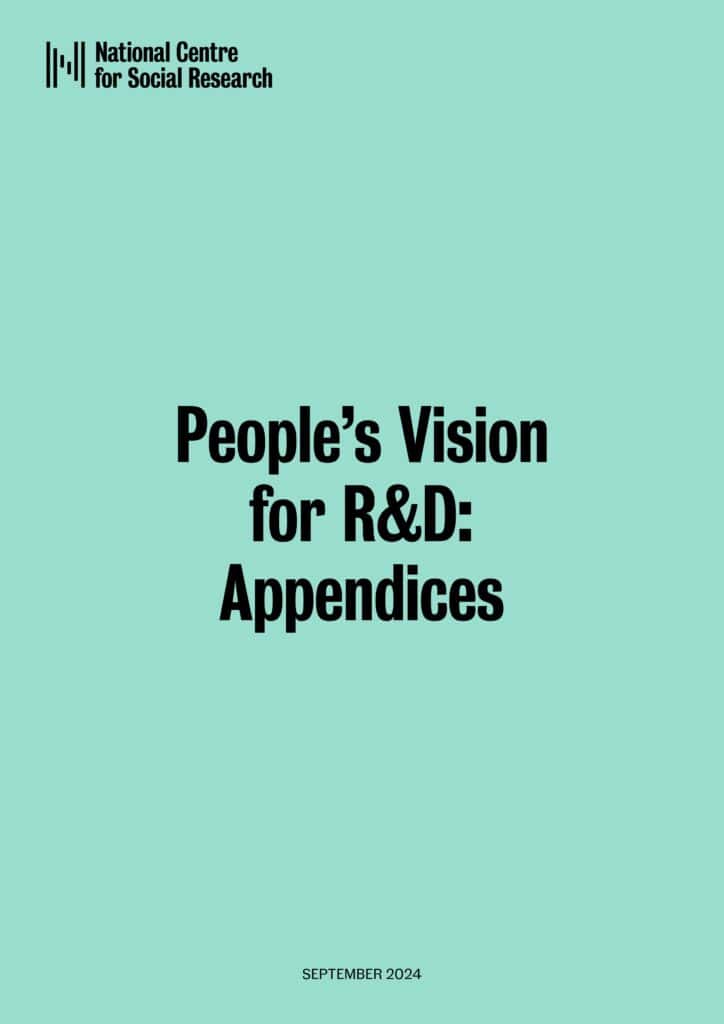
Methods and Appendix
Accompanying NatCen’s report are the full methods and appendices, which can be accessed via NatCen’s website.
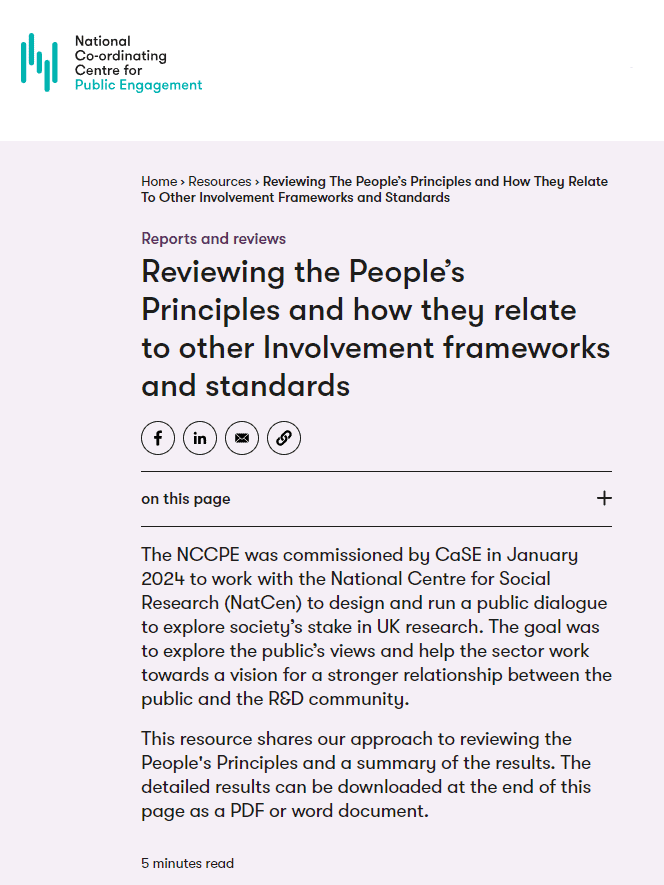
NCCPE's review of the People’s Principles and other involvement frameworks and standards
The National Co-ordinating Centre for Public Engagement has conducted a review comparing the People’s Principles for Involvement in R&D, developed by participants during the public dialogue exercise, with other established frameworks and standards for involvement in R&D. You can read the approach to this review and the results here.
CaSE's Recommendations and Reflections
CaSE has produced a separate report reflecting on the People’s Vision for R&D public dialogue and offering recommendations for those working in R&D to help further embed involvement as one route to a stronger, long-lasting relationship with the public. Our report can be read here.
